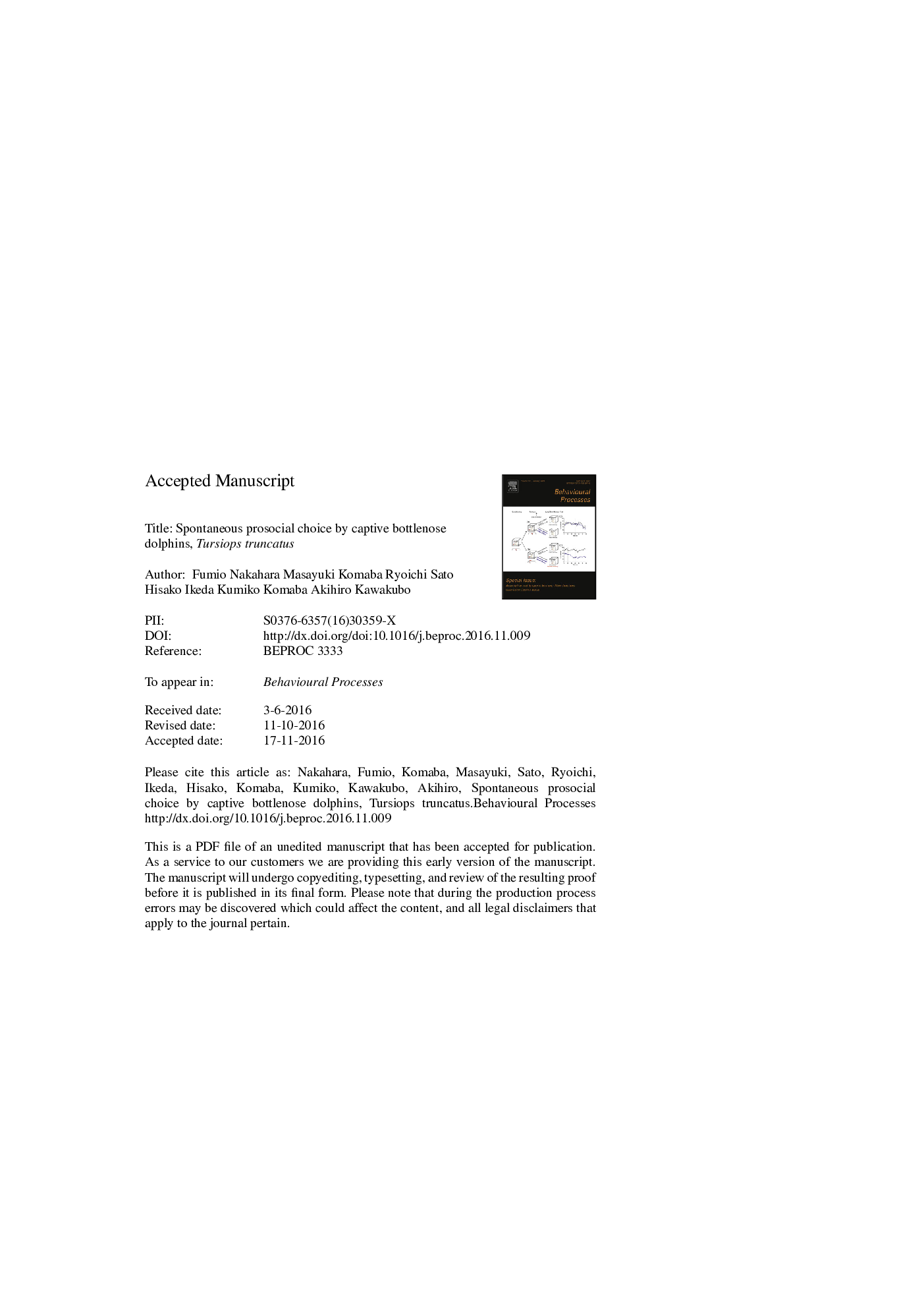| Article ID | Journal | Published Year | Pages | File Type |
|---|---|---|---|---|
| 5539691 | Behavioural Processes | 2017 | 19 Pages |
Abstract
Dolphins exhibit prosocial behavior across several different contexts. However, only a few experimental studies have investigated the psychological mechanisms underlying this behavior. In this study, we investigated the mechanisms underlying prosociality in bottlenose dolphins (Tursiops truncatus). In the experiments, water shower devices, developed as environmental enrichment items, were used. Two paradigms were used to measure prosociality. The first was the prosocial choice task, involving the subject typically being offered one choice between two options. The first option provided a reward (take a shower) to both the subject and partner (prosocial choice). The second option provided a reward only to the subject (selfish choice). The second paradigm was the giving assistance task, involving the subject being provided a choice between providing instrumental help to the partner (prosocial choice) or doing nothing. It was observed that the subjects chose the prosocial choices in both paradigms. In these experiments, prosocial choices were spontaneously taken without requests from the partners. These results indicated that the dolphins show preference for other-regarding behavior.
Related Topics
Life Sciences
Agricultural and Biological Sciences
Animal Science and Zoology
Authors
Fumio Nakahara, Masayuki Komaba, Ryoichi Sato, Hisako Ikeda, Kumiko Komaba, Akihiro Kawakubo,
